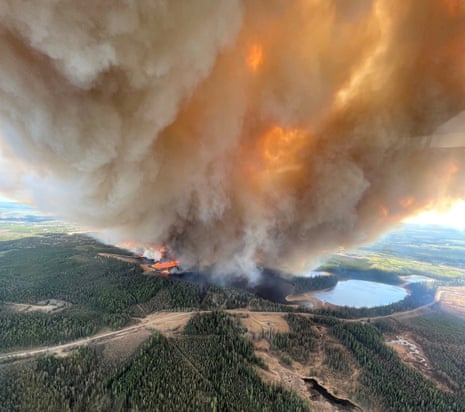A week of record hot weather in western Canada has forced thousands of people to evacuate their homes, as wildfires raged in parts of Alberta and rapid snow melt triggered flooding across interior British Columbia.
By Friday, more than 13,000 people were under evacuation orders in Alberta, as 78 fires burned. Among the worst-hit areas was the Little Red River Cree Nation in the north of the province, where the 1,458-hectare Fox Lake fire consumed 20 homes and the police station.
The entire 7,000-strong population of Drayton Valley, 140km (87 miles) west of the provincial capital Edmonton, was also ordered to evacuate late on Thursday night.
There have been 348 wildfires in Alberta this year and more than 25,000 hectares (62,000 acres) burned, said Christie Tucker, an information unit manager for Alberta Wildfire.
“This is significantly more wildfire activity for this time of year than we have seen any time in the recent past,” Tucker told a press conference, adding fires were expected to intensify on Friday.
“It’s going to get hotter, it’s going to get windier and we are expecting some extreme wildfire behaviour. Firefighters are at the ready today for what could be an extremely challenging day,” she said.

In British Columbia, rivers burst their banks, washing through homes and forcing highway closures in numerous communities across the southern interior, including Cache Creek and Grand Forks.
Until last week western Canada had been enduring a cold spring but the rapid onset of unseasonably high temperatures, in places 10-15C above the average for early May, is causing fires and flooding.
In British Columbia, the flooding is expected to worsen over the weekend with heavy rain forecast across the south of the province.
“Peak river levels are expected on Saturday through Monday,” British Columbia’s River Forecast Centre said in a flood warning issued late on Thursday.
